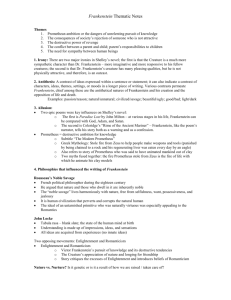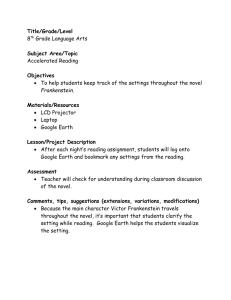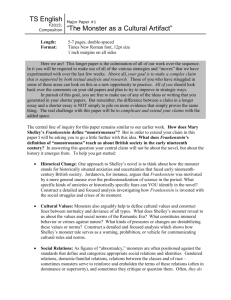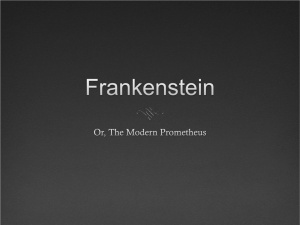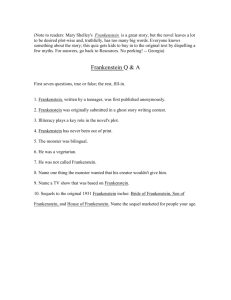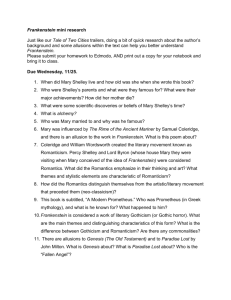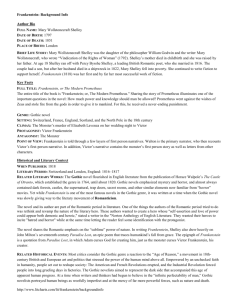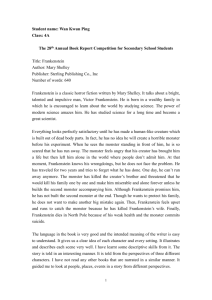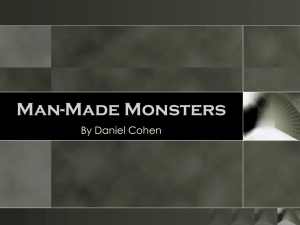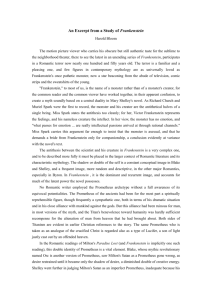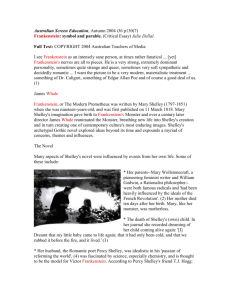Frankenstein: or The Modern Prometheus
advertisement
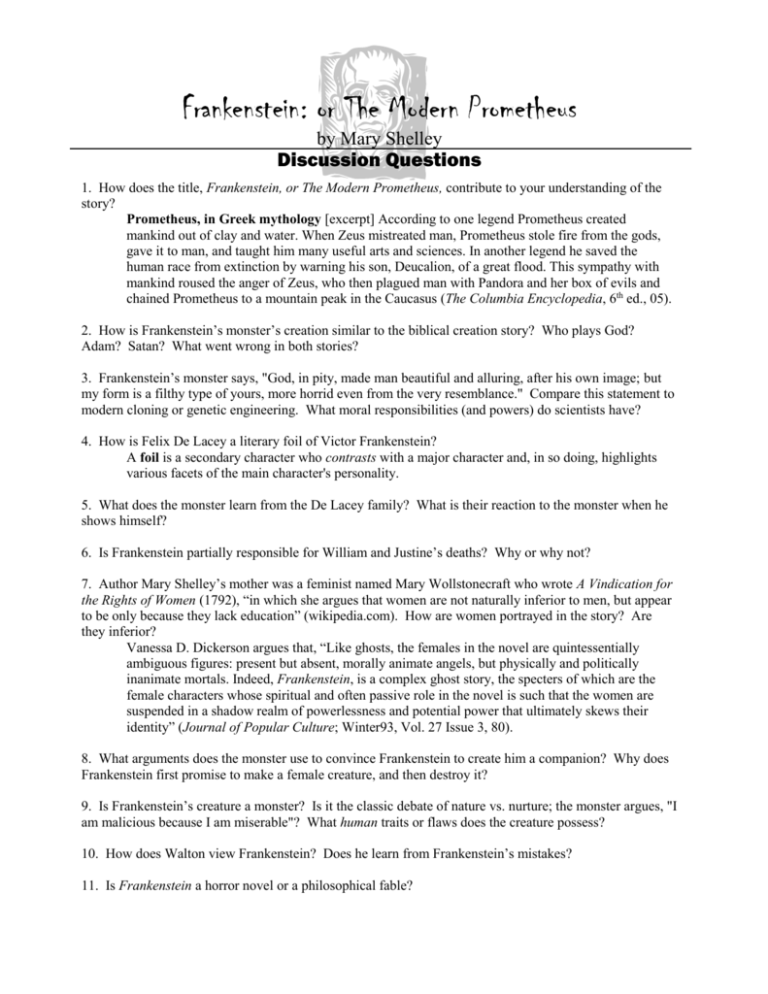
Frankenstein: or The Modern Prometheus by Mary Shelley Discussion Questions 1. How does the title, Frankenstein, or The Modern Prometheus, contribute to your understanding of the story? Prometheus, in Greek mythology [excerpt] According to one legend Prometheus created mankind out of clay and water. When Zeus mistreated man, Prometheus stole fire from the gods, gave it to man, and taught him many useful arts and sciences. In another legend he saved the human race from extinction by warning his son, Deucalion, of a great flood. This sympathy with mankind roused the anger of Zeus, who then plagued man with Pandora and her box of evils and chained Prometheus to a mountain peak in the Caucasus (The Columbia Encyclopedia, 6th ed., 05). 2. How is Frankenstein’s monster’s creation similar to the biblical creation story? Who plays God? Adam? Satan? What went wrong in both stories? 3. Frankenstein’s monster says, "God, in pity, made man beautiful and alluring, after his own image; but my form is a filthy type of yours, more horrid even from the very resemblance." Compare this statement to modern cloning or genetic engineering. What moral responsibilities (and powers) do scientists have? 4. How is Felix De Lacey a literary foil of Victor Frankenstein? A foil is a secondary character who contrasts with a major character and, in so doing, highlights various facets of the main character's personality. 5. What does the monster learn from the De Lacey family? What is their reaction to the monster when he shows himself? 6. Is Frankenstein partially responsible for William and Justine’s deaths? Why or why not? 7. Author Mary Shelley’s mother was a feminist named Mary Wollstonecraft who wrote A Vindication for the Rights of Women (1792), “in which she argues that women are not naturally inferior to men, but appear to be only because they lack education” (wikipedia.com). How are women portrayed in the story? Are they inferior? Vanessa D. Dickerson argues that, “Like ghosts, the females in the novel are quintessentially ambiguous figures: present but absent, morally animate angels, but physically and politically inanimate mortals. Indeed, Frankenstein, is a complex ghost story, the specters of which are the female characters whose spiritual and often passive role in the novel is such that the women are suspended in a shadow realm of powerlessness and potential power that ultimately skews their identity” (Journal of Popular Culture; Winter93, Vol. 27 Issue 3, 80). 8. What arguments does the monster use to convince Frankenstein to create him a companion? Why does Frankenstein first promise to make a female creature, and then destroy it? 9. Is Frankenstein’s creature a monster? Is it the classic debate of nature vs. nurture; the monster argues, "I am malicious because I am miserable"? What human traits or flaws does the creature possess? 10. How does Walton view Frankenstein? Does he learn from Frankenstein’s mistakes? 11. Is Frankenstein a horror novel or a philosophical fable?

